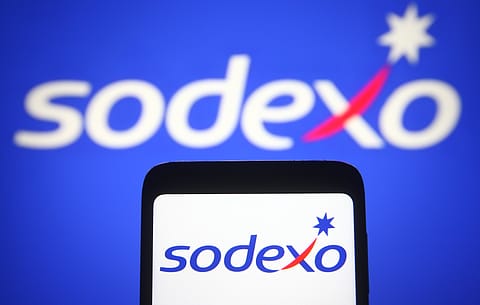How Sodexo is repositioning itself as an employee engagement platform
Around 30% of Sodexo’s clients across the globe are looking for services beyond meals and rewards. This includes categories such as health and wellness, upskilling and even wi-fi services at home.

Remember the Sodexo meal coupons that employees got as part of salary which could be exchanged for a meal at the office cafeteria or even buy groceries from designated stores? The paper meal coupon has evolved into a digital app which enables employees of organisations to not just get their meal delivered at their workstation, but also order from a restaurant closer to home when working from home.
The B2B2C (business-to-business-to-consumer) company which is present in 31 countries, and has a consumer base of over 3.5 million in India, is now positioning itself as an employee engagement platform as opposed to just a meal and rewards service.
Aurelien Sonet, Global CEO, Sodexo Benefits and Rewards Services (Sodexo BRS), says that around 30% of Sodexo's clients across the globe are looking for services beyond meals and rewards. This includes categories such as health and wellness, upskilling and even wi-fi services at home. "In many geographies mobility as a benefit has become popular. Companies want to drive a change of behaviour and are therefore enabling their employees to use electric bikes and scooters and sharing cars with their colleagues. The idea is to reduce carbon footprint." Sodexo, says Sonet, has been actively partnering with electric vehicle rental companies to be able to offer these services to its clients.
In India, there is an increasing trend of consumers signing up for upskilling programmes through its partners such as Coursera or LinkedIn Education. "Upskilling is a huge need of the hour and since employees have moved to a hybrid work culture, having classroom sessions is not viable. So, organisations are asking us to offer those programmes to their employees," explains Anish Sarkar, CEO, Sodexo BRS India.
The company has over 100,000 merchant partners in India, of which health and wellness and diagnostic companies have become important elements especially in the covid-19 world. He says that over 25% of the 11,000 organisations that the company has partnered with in India are opting for services beyond meals. "Pre-pandemic these facilities were less than 5%, now 25-30% of clients are opting for it and it is growing. There has been a 5X growth in learning and development," Sarkar further adds.
Moving to a digital ecosystem has also powered the organisation with a lot of data, which it has been using to offer personalised services to its consumers. "Data enables us to understand preferences, where they are spending and the kind of things they are spending on. We are trying to personalise by giving them deals in their locality, which is specific to their interest. If there is a pattern of shopping during the weekend, we try to give them better offers," says Sarkar.
"We are building new used cases across the world. It is a way to boost social interaction across the organisation. Clients are asking much more than before the pandemic. In Chile for instance, we are piloting blockchain technology," adds Sonet.
Recommended Stories
The shift to a digital solutions provider has opened up new job opportunities in the organisation globally. "Today, one-fifth of our workforce is related to tech talent and the number is growing. Cyber security is crucial for us. We are looking for data specialists. We have built a data park, so we are recruiting data engineers and data scientists," says Sonet. With technology playing an over-arching role across the globe, the company has adopted a centralised hiring strategy instead of hiring tech talent locally. "We are streamlining talent at a global level and India is an important talent hub for the organisation."